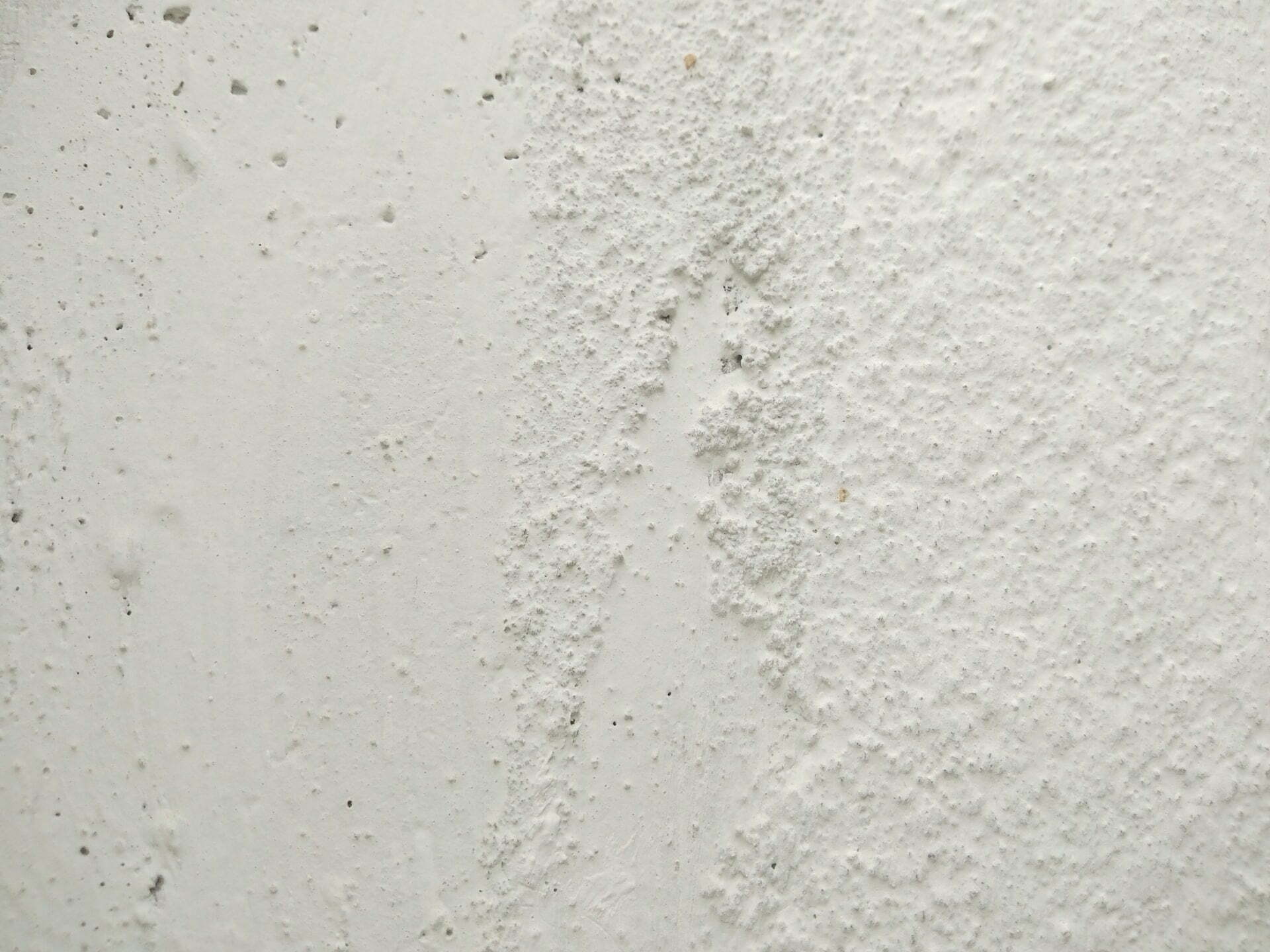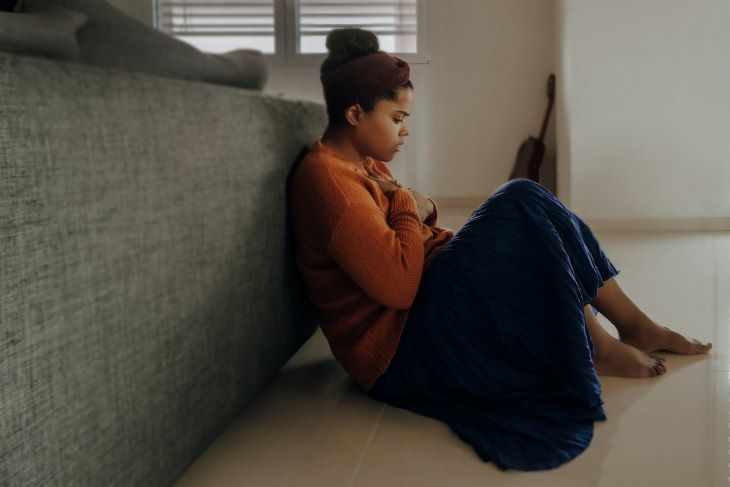In England, alcohol and drug use are two of the leading risks for early death among people aged 15 to 49.
Between 2016 to 2017 it was estimated that over 3,000 people used opiates and crack cocaine within the Suffolk area.
If you are struggling with addiction get in touch with OK Rehab.
Our helpline advisors are here to help and want you to access the most suitable treatment programmes in Suffolk.
We can help kickstart the process of recovery by recommending safe and reliable routes into treatment for you or a loved one.
Our job is to take your expectations of treatment along with information about your addiction and find an appropriate clinic best suited to your needs.
We can take the hard work out of finding a rehab clinic in Suffolk and provide you with many options that can see you into a happier, healthier life.
Even if you just have questions about rehab in Suffolk or are concerned for a friend or a loved one, call us today and we can answer your queries confidentially and at no cost.
When should I seek treatment?

Visiting our webpage today might be the first time you have actively acknowledged your addiction and the fact you need help.
You may be feeling anxious and uncertain, wondering if and when treatment should be accessed.
Here are a few signs that can show you need to access treatment from one of our many rehab centres:
- You have tried to quit before but ended up taking more substances
- You have a high tolerance for drugs and alcohol
- Things that you used to enjoy now don’t bring a feeling of joy
- The substance consumes your daily life
- You use the substance even though it’s affecting your physical and mental health
At OK Rehab, we offer free advice from a team of non-judgemental professionals, many of whom are in recovery and understand how hard it can be to change your relationship with addiction.
To find out more about rehab in Suffolk, simply reach out to our 24/7, confidential hotline on 0800 326 5559
Do I need to attend rehab in Suffolk?

Denial is a huge part of addiction and it can be tough to admit you have a problem with drugs or alcohol.
If you are uncertain about your substance abuse and wondering if you need to attend rehab in Suffolk, ask yourself the following questions:
- Has addiction become your main priority in life?
- Do you feel that your relationships with others have become affected by your use of substances?
- Do you avoid attending events so you can consume drugs or alcohol?
- Do you rely on substances to see you through the day?
- Have you tried to quit in the past but have failed?
- Have people in your life come to you with concerns over your drug and alcohol use?
If your answer to many of the above questions is yes, then it may be time to consider inpatient treatment at a local rehab clinic in Suffolk.
Many of the modern rehab clinics in Suffolk provide evidence-based treatment programmes, meaning you will be in the best hands at all times.
Treatments on offer include detox programmes and cognitive behavioural therapy.
What happens at rehab?

Each client’s treatment programme differs though if your addiction to drugs or alcohol is severe you will start your treatment with detoxing.
This is when you undergo a medically supervised programme overseen by trained professionals.
During detoxification, your body starts to learn how to adjust to life without substances and flushes all toxins out.
We do not recommend you detox at home as this can be life-threatening if not managed correctly. When you detox your body undergoes withdrawal symptoms.
These can be painful and, if detoxing at home, can cause you to relapse taking more of the substance your body craves to stop any feelings of displeasure.
When you have completed your detox programme you can begin therapy to help heal your mind.
Detoxing usually lasts about one to two weeks, though this can be longer depending on the severity of your addiction.
To disocver more about what a stay at a drug and alcohol rehab in Suffolk will entail, call us on 0800 326 5559.
What types of therapy are on offer?

Traditional forms of therapy such as cognitive behavioural therapy and dialectical behavioural therapy are used throughout many rehab in Suffolk.
These have been proven to be extremely beneficial in exploring causes of addiction and learning coping mechanisms for life outside of treatment.
Modern psychotherapy is also explored as well as holistic methods such as arts and crafts, sports therapy, and massage therapy.
Suffolk offers wide areas of tranquil scenery, meaning you can make the most of your comfortable rehab facility and enjoy what the county has to offer.
Why should I visit rehab in Suffolk?

At OK Rehab we are in touch with a wide range of treatment providers all across the UK meaning we can help you decide upon a suitable place to attend rehab in Suffolk.
We encourage localised recovery, meaning that selecting a rehab clinic in Suffolk, if you are close to the area, will be the most convenient to you.
Depending on the kind of treatment you are offered you may be required to attend your chosen clinic regularly meaning it would be useful for you to live close by.
With this taken into consideration, it is important to set realistic expectations for what you want to receive from treatment.
Travelling far for treatment may see you lose motivation quickly and stop attending sessions. This can be detrimental to your recovery, so we encourage you to consider how far away your chosen clinic is.
Localised treatment is recommended for the level of comfort it can provide. It can also be reassuring to have friends and family within the local area so you can ask them for support.
Through this, you will also be offered group sessions such as family therapy which can have a positive impact on your success and recovery.
Another benefit to localised treatment is that after you have completed residential rehab, aftercare services will be provided within your area.
It is important to consider how far you are willing to travel for aftercare services. If you are based close to your clinic you will be able to access great resources within your community such as Alcoholics Anonymous and Narcotics Anonymous.
Get the help you need to overcome addiction at a drug and alcohol rehab in Suffolk by calling us on 0800 326 5559.
Should I consider residential rehab in Suffolk?

The delivery of your treatment will be tailored and personalised to you. It is first important to select which form of treatment will best suit you, outpatient or inpatient.
If you are thinking about attending rehab because of a severe addiction that you have been trying to overcome, we would recommend inpatient treatment at a residential rehab in Suffolk. This kind of treatment is encouraged for many clients.
Residential rehab can provide you with the space to focus on yourself and allow you to recover in time with no distractions.
Paired with the high level of care you will receive from staff; you can enter recovery quicker than you may realise.
One of the biggest benefits of entering residential rehab is the freedom away from triggers and associations related to your addiction.
Many people suffer from emotional triggers tied to their addiction and trying to recover at home can make this very hard.
By opting to move into a clinic you can remove yourself from any negative situations and harness new skills to make life easier when you complete treatment.
Residential care offers structure and routine, some things clients may have previously lived without. This can be extremely beneficial when treating addiction as it provides consistency and stability.
How do referrals work?

When you contact us regarding admission a member of our team will conduct a short assessment.
This can help us find out a bit more about your addiction and what your expectations and goals are for recovery.
This initial call can help us find out about your relationship with drugs and alcohol as well as your current psychological state. We can also discuss your budget for rehab in Suffolk as well as your motivations for recovery.
With your consent, we can then pass on your information to local rehab providers who can offer specific treatment programmes catered to your needs. Our team will always offer you support and guidance during your treatment journey and beyond.
We pride ourselves on offering personalised approaches to recovery and value each patient as an individual, knowing that addiction affects people in a variety of ways.
To find out more about rehab in Suffolk, simply reach out to experts today on 0800 326 5559.
What Happens Before Rehab?

Before entering rehab in Suffolk, the first step towards addiction recovery is having an assessment.
This initial assessment helps you and your addiction therapist to understand how severe your addiction is, what type of rehab would be best for you and identify any co-occurring disorders that might affect your addiction recovery.
To begin your recovery journey, you can give the OK Rehab team a call and our team can help you find the right rehab option for you.
You can then book an initial assessment at a local rehab clinic, or visit your GP to be referred to private or NHS rehab services in Suffolk.
If you are concerned for a loved one and want to help them to get help for their recovery, then approaching the topic of addiction rehab can be difficult.
The best approach is to calmly discuss your concerns with them, without any judgement or blame, and see if they are open to discussing their drug and/or alcohol use.
One of the most common emotions that those with alcohol and drug addiction experience are feelings of guilt, denial and shame around their addiction.
This can make it challenging to help someone experiencing these problems as they are often reluctant to discuss their addiction.
In this case, holding an intervention might be necessary in order to support and motivate your loved one to seek addiction recovery services.
Holding an intervention involves the addicted person sitting down with friends and family in a group, and listening to the concerns of their loved ones. This should be a supportive and empathetic environment, where the loved ones can express their love for and concern for the person and encourage them to seek help.
Interventions are best conducted with the help of a professional interventionist, who can act as a mediator between the person and their loved ones, guide the intervention appropriately and help provide support for all during the intervention.
What are my options for treatment?

Whether you complete an inpatient or outpatient programme we will always offer you leading and effective forms of treatment.
One of the reasons private rehab is advised is because it offers high standards of treatment for all clients.
In rehab, you can usually expect to complete a wide range of treatments to help better your body and mind. These can include, but are not limited to:
1. Detox programmes
This is the first form of treatment you will be offered, and it is a crucial first step in your recovery.
Detoxing allows your body to expel any toxins from drugs and alcohol and whilst it can be very uncomfortable it is important to remember that it is only temporary and can allow your body to heal.
To find out more about rehab in Suffolk, simply reach out to our 24/7, confidential hotline on 0800 326 5559.
2. Therapy sessions

After you have detoxed you will be offered various forms of therapy. This can range from traditional forms such as cognitive behavioural therapy and dialectical behaviour therapy.
Many clinics in the Suffolk area also offer psychotherapy and holistic forms of therapy.
Engaging in therapy can be invaluable in healing your mind and learning new skills and coping mechanisms.
To prepare for entering society again once treatment has been completed, you can expect to put plans into place with the assistance of your support worker.
These plans usually include relapse prevention which can help you learn how to manage cravings and what to do in the event of a relapse.
If a relapse does occur, we urge you to contact us immediately. There is no need to feel shame or guilt we just want to ensure your safety.
Relapsing doesn’t signify failure, but rather that your needs have changed therefore treatment needs to be adjusted accordingly.
Even if you have completed treatment but still need help you are encouraged to reach out to us again and enter a facility if you need support.
There is no time limit on treatment or how long it will take you to recover. Recovery is often thought of as a journey because it takes time and there may be bumps in the road.
This is not a journey that you have to take alone, and we can stand by your side throughout.
What does a typical day at rehab in Suffolk look like?

Residential rehab is considered the most effective form of treatment because it provides patients with routine.
A typical day in rehab will vary for each patient but usually revolves around a pattern of events.
You will usually have a set time for waking up in the morning followed by a healthy, nutritious breakfast prepared by staff. After this, you will attend a group therapy session or meeting.
At lunchtime, you will be offered another meal then take part in more individual activities such as one-to-one therapy or counselling.
You are also encouraged to make use of alternative treatments and therapies such as creating art or music.
You will always be encouraged to enjoy personal activities as this form of care can encourage you on your journey and the joy you may have lost due to addiction.
After your evening meal, you will be invited to attend another session which could be a 12-step meeting or group therapy.
Bedtime is usually set around 10 o’clock which can give you much-needed time to relax and unwind before beginning another productive day.
Learn more about hat rehab in Suffolk will involve by calling us on 0800 326 5559.
How Much Does Rehab Cost in Suffolk?

There are a variety of options when it comes to drug and alcohol rehab in Suffolk and therefore the cost of rehab varies widely.
Free drug and alcohol rehab is available on the NHS, and there are both inpatient and outpatient rehab options in Suffolk.
In order to access free addiction rehab and recovery services, it is advisable to visit your local GP and discuss your addiction recovery needs with them in order to get a referral for treatment.
There are also a number of charities who provide free addiction recovery services, such as addiction therapy and support groups.
Free drug and alcohol rehab services are a great option for many and make addiction recovery more accessible for all.
Here are just a few of the many places you can seek help for free in Suffolk:
1. Suffolk Recovery Network (Turning Point)
Address: Sanderson House, 17-19 Museum St, Ipswich IP1 1HE
Telephone: 01473 220240
Website: https://www.turning-point.co.uk/services/suffolk-recovery-network
2. CAMHS East and West Suffolk
Address: 2nd floor, Mariner House, 43 Handford Road, Ipswich, IP1 2GA
Telephone: 01473 237 055
3. ICENI Ipswich
Address: Iceni Ipswich, 74-78 Foundation Street, Ipswich, Suffolk, IP4 1BN
Telephone: 01473 214006
Website: https://www.iceniipswich.org/
However, it is worth noting that due to a lack of funding for NHS services, limited charity funding and so many people needing support, inpatient treatment is less widely available and waiting lists for inpatient and outpatient treatment can last between 6 months to 1 year.
For a faster route into a variety of rehab options, private drug and alcohol rehab in Suffolk is also a great option for people seeking addiction recovery services.
Inpatient private rehab costs an average of £495 per day, or £14,000 for a recommended 28-day stay in rehab.
The cost of inpatient private rehab however does vary, depending on a variety of aspects such as the type of room you stay in (shared, standard of deluxe), the facilities you want access to (swimming pools, spas etc.) and which addiction therapies you attend.
Make sure that you end up at a rehab that fits both your needs and your budget – give our team a call today on 0800 326 5559.
Is There Drug and Alcohol Rehab on the NHS?

Drug and alcohol rehab is available on the NHS and is free to all UK residents.
There are both inpatient and outpatient NHS options which are available all over the UK, including NHS drug and alcohol rehab in Suffolk.
However, as mentioned above, waiting lists for NHS addiction services can be between 6 months to 1 year, particularly if you are waiting for inpatient treatment.
Private rehab clinics often take on NHS funded patients for inpatient stays, however there are far less beds available to NHS patients due to limited funding. Therefore most NHS addiction services are on an outpatient basis.
In Suffolk, the Suffolk Alcohol Treatment Service is an NHS funded service which offers professional interventions, structured support and advice for people experiencing difficulties with their alcohol use.
Other services which provide free addiction support services in Suffolk include Turning Point Suffolk, which offers support for under 25s who want help with their alcohol or drug use, and Inceni who support families struggling with addiction.
For more information on the drug and alcohol NHS services, contact the OK Rehab team or visit your GP to discuss NHS and charity-funded addiction support in Suffolk.
To find out more about rehab in Suffolk, simply reach out to our 24/7, confidential hotline on 0800 326 5559.
How Long Does Rehab Last in Suffolk?

The length of time you will be in addiction treatment will depend on the severity of your addiction, the type of treatment you have and your personal treatment plan.
During your initial assessment in Suffolk, the length of your drug and alcohol rehab treatment will be discussed with you.
The first part of addiction recovery is detox.
Drug and alcohol detox lasts anywhere from 3-10 days, and it is recommended to allow up to 10 days particularly for an at home detox. This is to ensure that all traces of the substance are out of your system so that your mind and body can focus on recovery.
Following detox, you will then engage in a programme of addiction treatments such as one-to-one therapy, group therapy, addiction counselling, holistic treatments and cognitive behavioural therapy.
Overall, the length of each person’s treatment varies, the average length of a residential rehab stay is 28 days. This is designed to allow enough time for you to detox from the addictive substances and then undergo therapeutic treatments.
However, residential rehab stays can last as short as 7 days (often for those who have relapsed and need to get back on their feet or those with mild addictions) and as long as 90 days.
If you attend residential rehab, then following your 28 day stay you will then be given aftercare services and may still attend treatments such as outpatient therapy.
Outpatient addiction treatments in Suffolk can last anywhere from 4 weeks to months or even years, particularly if you attend drop in sessions or support groups. There are a wide variety of addiction support services including those which are available for times of crisis and more structured sessions which you can attend to support you in recovery.
NHS Vs Private Addiction Treatments

It can be difficult to know which type of drug and alcohol rehab in Suffolk is right for you, whether outpatient or inpatient, NHS or private.
The reality is that there are advantages and disadvantages to all types of addiction treatment, and you will need to make an informed decision to attend the treatment which is best for you.
When it comes to NHS vs private drug and alcohol rehab, there are a number of elements to consider before choosing which route to go down.
Advantages and Disadvantages of NHS Rehab
Pros
- Free of charge – fully funded by the NHS.
- Available to all UK residents.
- Accessible all over the UK with services local to Suffolk.
- Inpatient and outpatient services available.
Cons
- Waiting lists are usually between 6 months to 1 year
- Limited number of inpatient spaces.
- Limited range of therapies and treatments available.
Pros and Cons of Private Drug and Alcohol Rehab in Suffolk

Pros
- Most patients are able to begin treatment within 24-48 hours.
- Inpatient treatments consistently available
- Wide variety of treatment options including holistic treatments e.g. equine therapy.
- Patients have more say over the type of treatment they receive
- Options for shared or private rooms, room upgrades, dining services and the use of rehab facilities such as swimming pools
Cons
- Costs an average of £495 per day (£14,000 overall)
- Due to wide range of choice, patients might choose the treatments they want rather than those they need
Both private and NHS treatment have their pluses and minuses, and the OK Rehab team are happy to help you to decide which drug and alcohol rehab in Suffolk would be best for you.
For help choosing between private and NHS addiction treatment services in Suffolk, give our team a call today on 0800 326 5559.
Inpatient Or Outpatient Treatment In Suffolk

Inpatient treatment for drug and alcohol addiction refers to the treatment which takes place when a patient stays in a rehab clinic during the day and overnight.
Inpatient treatment programmes are suitable for many patients but particularly those with moderate to severe addictions. This is because this type of treatment provides more intensive support for patients, with addiction professionals available 24/7.
It also allows patients to get away from their home environment and outside influences or environments which might make addiction detox and recovery more challenging.
Inpatient treatment programmes in Suffolk usually last around 28 days, consist of a detox period and then a course of therapeutic treatments. Due to the accessibility of medical professionals, an inpatient detox is often recommended particularly for severe alcohol or drug detox.
As aforementioned, inpatient treatment is readily available through private rehab however has limited spaces that can be funded by the NHS.
There are a variety of inpatient rehab clinics in Suffolk and throughout the UK, and there are private and shared room options.
Outpatient drug and alcohol treatment in Suffolk refers to treatment carried out during the day with the patient returning home at night.
This option is suitable for mild to moderate addictions, and allows a patient a greater degree of independence whilst still getting professional support throughout their recovery.
There are different levels of outpatient support, including more intensive and less intensive options.
Part-hospitalisation refers to a patient remaining in a rehab clinic for a short period (e.g for a 10 day detox) and then returning home to undergo outpatient therapies for the rest of their treatment programme.
Outpatients attend therapies every week, with some attending up to 6 days a week for 5 hours for more intensive programmes, and some only attending every 3-4 days for 1-3 hours.
The amount of time you spend in the rehab clinic as an outpatient will depend on your needs and the type of addiction treatments you are having.
Alcohol Detox And Rehab In Suffolk

Despite nearly 80% of the UK having consumed alcohol in the last 12 months, and 48% drinking at least once a week, it can have a very detrimental effect on both physical and mental health.
This is especially the case for those who experience alcohol dependency, which affects around 602,391 people in the UK.
If you or your loved one are struggling with alcohol addiction, then seeking addiction support in the form of an alcohol rehab in Suffolk could be the best option for you.
Due to the physically addictive nature of alcohol, alcohol detox can be very dangerous and even fatal and therefore in many cases should not be carried out without professional support.
The withdrawal symptoms for alcohol include headaches, nausea, vomiting, depression, anxiety, insomnia, tremors, increased heart rate and sweating. A collection of withdrawal symptoms known as the Delirium Tremens (DTs) can be especially dangerous, and include confusion, aggression, shaking and vomiting.
When you attend inpatient detox at a rehab clinic in Suffolk, your withdrawal symptoms might be managed through medication such as Acamprosate or Naltrexone. This is known as a medical detox.
It is also possible to detox at home and be prescribed medication.
Following a detox, alcohol addiction therapies such as CBT, addiction counselling and support groups can then help to treat the psychological aspect of your alcohol addiction.
To find out more about rehab in Suffolk, simply reach out to our 24/7, confidential hotline on 0800 326 5559.
Rehab for Cocaine in Suffolk

Cocaine is the second most commonly used drug behind marijuana, with an estimated 1 in 11 adults in the UK having taken cocaine in the last year.
Commonly associated with feelings of euphoria and increased energy, cocaine is often used as a party drug and used by many recreationally.
However, the detrimental effects of cocaine should not be underestimated.
There are a number of physical health risks which affect several parts of the body including the heart, nasal passages, respiratory tract and gastrointestinal tract as well as mental health issues such as mood disorders.
Cocaine rehab is therefore essential for many who are experiencing dependence on this highly addictive substance.
Rehab for cocaine in Suffolk is a similar process to that of alcohol, however the detox period is not as dangerous due to cocaine’s primarily psychologically addictive nature.
This means that although highly addictive, the body does not build up as much dependence and therefore severe withdrawal symptoms such as the DT’s do not occur.
However, inpatient detox in Suffolk might still be needed to manage withdrawal symptoms such as fatigue, anxiety and insomnia.
After the detox period where your withdrawal symptoms and cravings are likely to be at their worst, you will then go through addiction treatments such as Dialectical Behavioural Therapy (DBT) and counselling to help overcome your cocaine dependence.
Rehab for Heroin in Suffolk

Heroin is a highly addictive opiate, which is more commonly used by those over 30 years old, many of whom have struggled with the substance for many years.
If you or your loved one is struggling with heroin addiction, or you fear it could become an addiction, then getting into treatment as soon as possible is essential in order to reduce the risks of this highly damaging drug.
The risks of heroin use include collapsed veins, heart lining or valve infections, pneumonia, abscesses, constipation and liver and kidney disease.
Alongside these severe physical risks, heroin users also frequently encounter short term effects such as nausea, vomiting, inhibited mental function and dry mouth as well as mental and behavioural health issues such as depression and anger.
Inpatient detox is most commonly used for heroin, due to the seriousness of the addiction and the physical dependence of the body on the drug. At home detox is often not advised as it can be dangerous and even fatal due to the potentially severe withdrawal symptoms.
Withdrawal symptoms such as increased heart rate, sweating, nausea, vomiting, increased breathing rate, high body temperature, diarrhoea and muscle cramps/pains may be experienced during detox.
These withdrawal symptoms are often offset by medications such as Methadone, Buprenorphine or Naltrexone to make recovery easier and safer and ensure a better chance of sobriety.
If you are seeking support for you or a loved one’s heroin addiction in Suffolk, then treatment will likely be an inpatient medical detox followed by your personal plan of addiction treatments such as group therapy and one-to-one counselling.
Outpatient services such as NA and drop in sessions are also available in Suffolk to help you if you are early on in your heroin usage, have just completed treatment or are recovered and need support to reduce the risk of relapse.
Cannabis Rehab in Suffolk

Cannabis, also known as marijuana or ‘weed’, is the most commonly used drug in the UK with around 1 in 11 adults reported to have used the drug in the past year. [10]
Despite its relatively common usage, there are several short-term and long-term health effects of using this psychoactive drug.
The risks of cannabis use include short and long-term impaired cognitive functioning, impairment of memory processes, cannabis dependence, throat, trachea and lung problems, low motivation, insomnia, anxiety, depression and increased risk of triggering psychotic illnesses such as schizophrenia.
Cannabis detox is often carried out at home, due to the lower risk and milder withdrawal symptoms than alcohol or heroin detox. However, some withdrawal symptoms might be managed through medications, such as anxiety and insomnia which can be very difficult to overcome alone.
Cannabis rehab in Suffolk can be outpatient or inpatient, however it is usually done on an outpatient basis.
Following detox, addiction treatments such as cognitive behavioural therapy and support groups at rehab in Suffolk can help you work through your addiction. Co-occurring disorders such as anxiety or depression will also be worked on further at this stage.
To find out more about rehab in Suffolk, simply reach out to our 24/7, confidential hotline on 0800 326 5559.
Why Dual Diagnosis For Co-occurring Disorders Is Needed

Dual diagnosis refers to the diagnosis of two disorders which occur in the same person at the same time. A common example would be depression and anxiety or eating disorders and obsessive compulsive disorder.
These two disorders are known as co-occuring or comorbid disorders, and are very common for individuals with substance use disorder (aka alcohol and/or drug addiction).
Disorders such as anxiety, depression, schizophrenia, post-traumatic stress disorder and bipolar disorder are frequently diagnosed alongside substance use disorder.
This can make it very difficult to treat patients as often co-occurring disorders impact each other, perpetuating them and/or masking them.
For example, many people suffering from mood disorders might drink more alcohol to make them feel happier, however they end up feeling worse in the long term.
When a patient is in treatment for a substance use disorder, it is essential that they are treated for any comorbid conditions they might have.This ensures that their addiction recovery is less likely to be affected by other untreated disorders.
Therefore, if you know you have or think you might have a physical or mental co-occurring disorder alongside your addiction, make sure you discuss this during your initial assessment for rehab in Suffolk.
Depending on the disorder, you might be assigned medication (which does not negatively interact with your substance use disorder or the treatment for it), therapy or another treatment which can support your addiction recovery and management of any other disorders.
Many organisations across the UK offer free mental health support, whether you are also suffering from addiction or not.
Some of the most useful include Mind UK, Young Minds, Rethink Mental Illness, Samaritans and Papyrus.
Relapse Prevention at Rehab in Suffolk

Relapse prevention is a core part of addiction recovery which is often not thought of by those going through or thinking of going through treatment.
However, it is central to the recovery process, and unfortunately people can relapse from their sobriety for a number of reasons and it can be incredibly difficult to deal with.
Alongside the risk of a full relapse which of course carries with it the many health risks of the substance itself, relapsing can also make people less likely to seek help again as they feel like they have failed and that they cannot do it.
However, that is far from true, and knowing how to handle a relapse, how to recognise the signs of a relapse and techniques to lessen the likelihood of a relapse can help give those in recovery the support they need to continue their sobriety.
When you complete drug or alcohol rehab in Suffolk, a relapse prevention plan will be collated alongside you to help support you when you leave treatment.
This plan will include the stages of relapse and how to recognise them, tools to prevent the next stage of relapse from occurring, methods to ease cravings and temptations as well as aftercare contacts such as crisis hotlines and support groups.
Your relapse prevention plan will be personalised to you and therefore will include techniques which you find work well for you as well as close contacts in Suffolk, online and over the phone that you can get in touch with if you fear that a relapse is likely to occur.
To find out more about rehab in Suffolk, simply reach out to our 24/7, confidential hotline on 0800 326 5559.
Aftercare And Support in Suffolk Once Rehab Has Finished

When you have completed your addiction treatment in Suffolk, and have your relapse prevention plan in place, you are ready to be more independent in your addiction recovery.
However, this does not mean that you are left to go it alone, as there are several support services available to you to use on an outpatient basis, even if you have already completed a course of treatment.
Some of the most commonly used aftercare services include:
- Alcoholics Anonymous
- Narcotics Anonymous
- Cocaine Anonymous
- SMART Recovery
- Al-Anon Family
- Outpatient treatment by the drug and alcohol team in Suffolk
You are not alone in your recovery journey, and whether you are looking for support for yourself or a loved one, we are here to help.
Contact OK Rehab team today to take the first step towards addiction recovery with drug and alcohol rehab in Suffolk.
To find out more about rehab in Suffolk, simply reach out to our 24/7, confidential hotline on 0800 326 5559.
All of our partner centres operate under strict guidelines set by the Care Quality Commission. and regardless of your budget, you will have access to high-quality care from professionally trained medical staff.
Get help for addiction across Suffolk including in Ipswich, Bungay, Beccles, Bury St Edmunds, Stowmarket, Newmarket, Barton Mills, Southwold, Aldeburgh, Halesworth, Woodbridge, Leiston, Felixstowe, Framlingham, Dunwich and many others.





